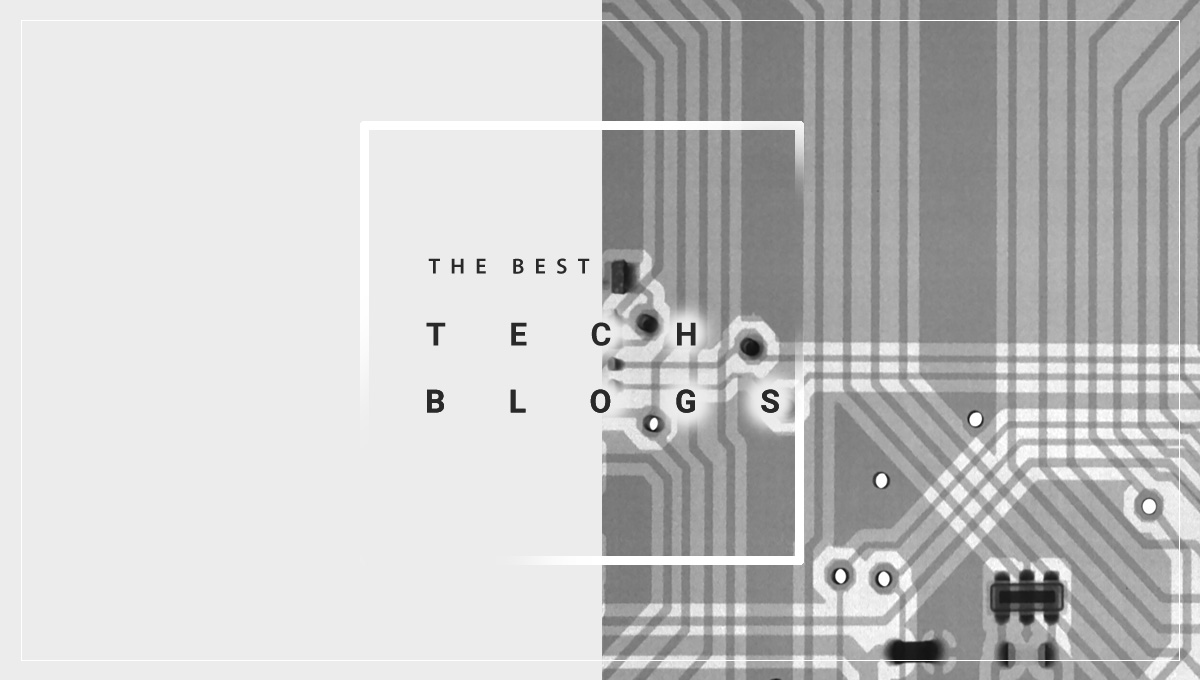Leading Factors to Follow the Best tech blog for Tech News and Tutorials
Leading Factors to Follow the Best tech blog for Tech News and Tutorials
Blog Article
How Blockchain Technology Is Revolutionizing Data Protection
Blockchain modern technology is fundamentally modifying the landscape of data safety and security by introducing a decentralized structure that guarantees improved openness and resilience. Unlike conventional systems, which rely on central data repositories, blockchain distributes information throughout a network, reducing vulnerabilities and solitary factors of failure. The usage of innovative cryptographic techniques makes sure that data stays tamper-proof, fostering depend on among users and stakeholders.
The Fundamentals of Blockchain
Blockchain innovation, a revolutionary principle in digital information administration, fundamentally transforms just how information is kept and protected. At its core, a blockchain is a dispersed ledger that tape-records purchases throughout a network of computer systems, making certain transparency and immutability. The technology operates a chain of blocks, each including a listing of purchases. Once a block is filled up, it is time-stamped and linked to the previous block, creating a chronological chain.
Secret to understanding blockchain is the hashing process, which secures purchase data into an one-of-a-kind alphanumeric code. This cryptographic feature ensures that any alteration in the transaction data results in an entirely various hash, therefore guarding versus meddling. The agreement device, another essential element, validates and confirms brand-new transactions through a network of nodes, consequently eliminating the requirement for a central authority.
Furthermore, blockchain's append-only framework guarantees that information, as soon as included, can not be removed or altered. This characteristic assurances a long-term and verifiable record of deals, cultivating depend on amongst individuals. Therefore, blockchain supplies a durable framework for data stability, supplying industries a dependable technique for monitoring and handling electronic information in a safe, transparent way.
Decentralization and Safety And Security
Decentralization, a core principle of blockchain technology, dramatically enhances information safety and security by distributing control throughout a network instead than counting on a singular, centralized entity. By spreading information throughout numerous nodes, blockchain makes certain that also if one node is compromised, the entire network stays safe and secure.

Each individual in the network has accessibility to the entire blockchain, enabling them to validate and audit deals individually. In general, decentralization is crucial in boosting data protection in blockchain networks.

Cryptographic Strategies
At the heart of blockchain modern technology, cryptographic methods play a crucial role in securing information, making sure both discretion and stability. Cryptography in blockchain employs a combination of symmetric and asymmetric formulas to encrypt information, making it available just to authorized celebrations.
Hash features are another important element, changing input information right into a fixed-size string of personalities, properly producing an unique digital fingerprint for every block. This guarantees that any kind of effort to alter the information will certainly lead to a completely different hash, therefore preserving the immutability of the blockchain. Electronic trademarks verify the authenticity and honesty of purchases, giving a layer of non-repudiation.
The decentralized nature of blockchain, integrated with robust cryptographic strategies, gets rid of the need for intermediaries, lowering potential susceptabilities. As blockchain technology advances, developments in cryptography such as zero-knowledge evidence and homomorphic security continue to boost security procedures, additionally fortifying data protection in this cutting edge electronic journal system.
Usage Cases Across Industries

In the medical care sector, blockchain ensures the safe storage and sharing of discover this patient records, advertising interoperability while guarding delicate data from unapproved accessibility. This innovation encourages people with control over their case history and helps with seamless control among healthcare suppliers.
Supply chain monitoring advantages considerably from blockchain's unalterable ledger, which makes certain traceability and authenticity of items from beginning to consumer. By improving openness, blockchain aids alleviate concerns such as counterfeiting and underhanded sourcing.
In addition, blockchain's decentralized view publisher site nature is improving the power market by enabling peer-to-peer power trading, where customers can deal excess eco-friendly power directly. This cultivates a more reliable and sustainable power environment.
In the realm of copyright, blockchain provides a tamper-proof platform for creators to register and shield their works, making sure rightful acknowledgment and fair settlement. These varied usage situations underline blockchain's function as a crucial pressure in redefining data security throughout sectors.
Future of Information Defense
As we seek to the future of information security, blockchain innovation is positioned to play a crucial function in safeguarding digital information. With its decentralized and unalterable features, blockchain offers a durable framework for protecting delicate information against unapproved accessibility and cyber risks. This innovation guarantees that as soon as data is recorded, it is almost impossible to change without detection, therefore giving a considerable benefit over typical information storage methods.
The combination of blockchain with other sophisticated innovations, such as synthetic intelligence and the Net of Points (IoT), is expected to enhance data protection approaches better. By leveraging clever contracts, organizations can implement and automate safety and security procedures, lowering human mistake and boosting effectiveness. Furthermore, blockchain's capability to supply traceable and transparent purchases will boost trust and responsibility in data monitoring techniques.
As regulatory landscapes develop, blockchain's compliance-friendly nature will certainly become progressively pertinent. It can aid companies satisfy strict data defense laws, such as the General Data Defense Policy (GDPR) and the California Consumer Personal Privacy Act (CCPA), by supplying proven documents of information handling tasks. Eventually, blockchain's special characteristics position it as a transformative device in the continuous mission to secure the digital world versus ever-evolving cyber dangers.
Verdict
Blockchain modern technology stands for a standard shift in data security by leveraging decentralization and cryptographic techniques to enhance transparency, depend on, and information honesty. As cyber threats develop, blockchain arises as a vital device for durable data defense throughout various sectors.
Blockchain modern technology is essentially modifying the landscape of information security by presenting a decentralized structure that guarantees improved transparency and resilience. Unlike traditional systems, which rely on centralized data repositories, blockchain disperses information throughout a network, lessening susceptabilities and click to find out more single points of failure.Decentralization, a core principle of blockchain innovation, dramatically improves data safety by distributing control throughout a network instead than counting on a particular, central entity.At the heart of blockchain innovation, cryptographic techniques play a pivotal function in guarding information, making sure both privacy and integrity.Blockchain innovation stands for a paradigm change in data security by leveraging decentralization and cryptographic techniques to improve openness, depend on, and data honesty.
Report this page